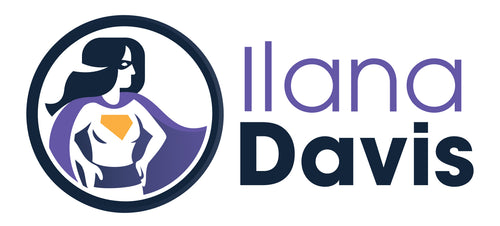The difference between backlinks and internal links
Published: August 26, 2025
If you want to understand SEO, you must understand Google.
To understand Google, you must understand content and links.
Grasp how content and links work and everything else in SEO is just details.
Google's algorithm has always been a way to find matching content and rank it for a question. Asking Google "what did the fox say" will have its servers find all of the content that is about "what the fox says", "foxes talking", and other related topic. Then it will sort that content from best to worst.
Content is how to teach Google what your pages are about (words, images, audio, video). Without relevant content, they won't even consider your pages a valid result and you won't show up for it. That's why content has always been king and why all SEO advice starts with creating high-quality content.
How Google sorts (ranks) the relevant pages is the secret sauce they constantly change. No one, not even Google themselves, know exactly how it works in detail but everyone agrees links are a huge factor.
Let's go back to early Internet, pre-Google.
The Google founders wrote a research paper that talked about how to find quality research papers if you don't know any of the researchers personally. This is important because without knowing the researchers, you wouldn't know who to trust. Is Dr. Smith an authority on the topic or is Dr. Quack? What if they contradict each other, who should you listen to?
Their paper and algorithm described a process to figure out who should be trusted without any prior knowledge. How it worked is pretty simple too.
Assume Dr. Starr, Dr. Harrison, and Dr. Lennon all wrote papers and referenced Dr Smith.
Yet Dr. S.N. Ake Oil is the only person to reference Dr. Quack's work.
From just that you can easily guess that Dr. Smith is a better authority on the subject than Dr. Quack.
Multiply that by 1,000s of people and papers and you can start to get a good idea about how relevant specific papers and researchers are for each topic.
This is also how lies and conspiracy theories gain traction. The more links to the misinformation, the higher chance it bubbles up for others to see. An interesting read if you’re curious, but I digress.
This exact same algorithm was adapted to work on Internet websites. On the Internet, Google didn't trust anyone at first but could see some pages get a lot of links pointing to them (e.g. Microsoft, Yahoo, GeoCities, universities). The more links, the higher they'd show up in the rankings.
They also made it so if a page has a lot of links pointing to it (thus having a high reputation), when it points out to another page, that page will get a larger relevance boost.
Nowadays Google's and other's algorithms are more complex but at their heart, this is how they function.
How does that apply to you?
You want links pointing to the pages you think are the most important. The more important your page, the more links you want. Those pages that are linking to you should also have other links pointing to them, that way they are "worth" more when they link to you.
Those that come from your own site are called internal links, while those that come from other places are called backlinks (they "link back" to your site).
Because you control your internal links, Google can't trust that you're unbiased with your links, thus they aren't that valuable for SEO rankings. It's like a car salesman saying they have the best deal in town, just trust them.
Internal links are amazing at helping Google and your customers navigate your site though. Don't neglect them. Just don't think you can add internal links and expect your rankings to jump.
Backlinks links, coming from other websites, are supposed to be unbiased so they carry weight. Get covered by a news site and their links will boost your page's reputation in Google's eyes.
Earning backlinks are hard though. Doing things to earn that attention is where most of an SEO budget goes to (the rest should go to content). Though I say this with caution, you can shortcut this process by buying links (e.g. ads, placements, paid guest posts) but do so at your own risk.
How you earn them will be up to you and your promotional resources. There are 100s of different ways to get out there and get the attention of other websites.
JSON-LD for SEO
Get more organic search traffic from Google without having to fight for better rankings by utilizing search enhancements called Rich Results.




